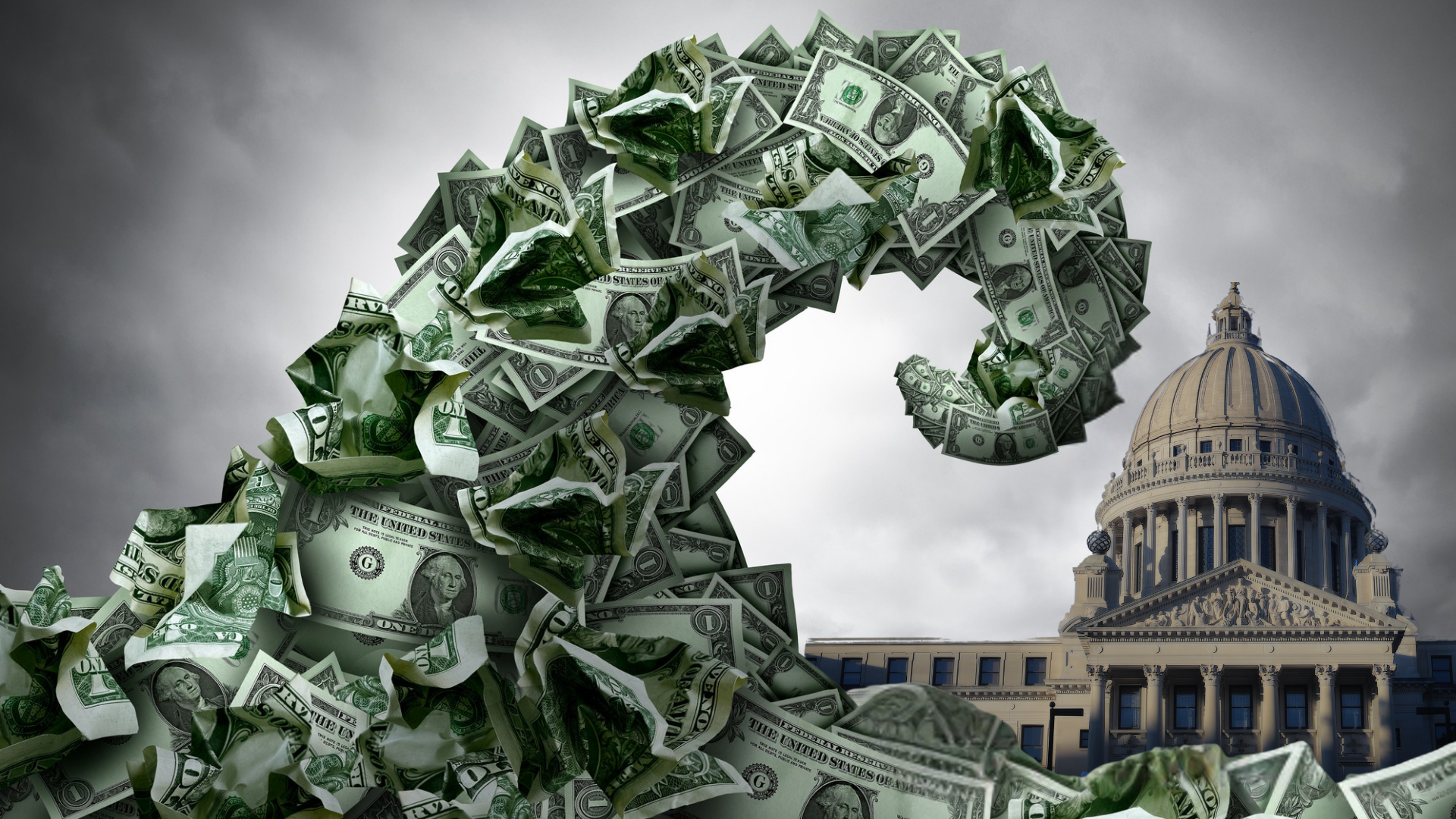Hearing those using the current economic crisis as a reason for Washington to impose a capital gains income tax, I’m left to wonder if they simply haven’t done their research or have more nefarious intent. For now, I’ll give them the benefit of the doubt that they haven’t spent the last several years contacting revenue directors from across the country or monitoring budget reports from other states.
From what I can gather from their statements, a California styled tax system is the holy grail for them. So, would WA’s budget currently be safe if our taxes looked more like California’s? Let’s take a look at what is happening right now down in the Golden State:
- "Soaring unemployment, delayed tax deadlines and a floundering stock market all spell disaster for the state’s revenues, which rely heavily on taxes on the wealthy." - Sacramento Bee 4/2/20
- "It’s a predictable outcome with California’s boom-and-bust tax system, echoing the rapid reversal of state finances when the housing bubble burst in 2008. The state is increasingly dependent on income taxes, with nearly half of its revenue coming from about 1% of taxpayers. A soak-the-rich approach is popular politically, and it delivers big dividends in a growing economy. But much of the revenue comes from capital gains, and they dry up fast when the economy hits the skids." - Santa Rosa Press Democrat 4/4/20
- “This second shock would come when wealthy Californians, their stock portfolios battered by coronavirus, file their income taxes next spring. Unless the stock market stages a major recovery over the next few months, income tax payments in 2021 are expected to decline by tens of billions of dollars. The drop-off in revenue could persist for several years, in fact.” - Sacramento Bee 3/23/20
- “A preliminary analysis conducted by our office indicates a very high likelihood that tax revenues from capital gains income will be several billion dollars lower than what the Governor’s budget assumed.” – California Legislative Analyst Office (LAO) 3/18/20
This fiscal news out of California is not surprising. Despite what you may have heard from income tax proponents, sales taxes are less volatile than income taxes (particularly capital gains income taxes). The extreme volatility of capital gains income taxes is well known by tax experts. When issuing Washington’s August 2019 bond credit rating Standard & Poor’s noted:
“Washington's revenues have historically exhibited less cyclicality than others (due in part to the lack of a personal income tax) . . . we have observed that capital gains-related tax revenues are among the most cyclical and difficult to forecast revenues in numerous other states."
Here is what state revenue directors across the country told me about the volatility problems inherent with taxing this type of income:
- Delaware: “In Delaware, capital gains are taxed under the personal income tax as all other income. As in every other state, capital gains are extremely volatile and unpredictable. This is particularly problematic toward the end of market cycles, when they represent a greater share of personal income tax revenues.”
- Massachusetts: “For the Commonwealth of Massachusetts, taxes on capital gains are among the most volatile and unpredictable major sources of revenue. Obviously, that is very much in line with the experience of other states."
- Iowa: “In Iowa, where capital gains are taxed like any other income source, capital gains income is generally more volatile and unpredictable than other sources of income -- such as wages and interest.”
- California: "California's tax revenues have numerous volatile elements, but among the more significant sources of revenue volatility are the state's tax levies on net capital gains through the personal income tax."
- Virginia: “Capital gains is the most volatile tax source that any state has to forecast. It is not dependable or stable.”
It is important to remember that there is no recession proof tax structure. The key is to build base budgets with fiscal discipline and have strong emergency reserves to help weather economic downturns. A capital gains income tax will not save Washington’s budget, but it would squarely put the state on the boom-and-bust budget cycle California is trying to reform.
Updated
Note: I will add new examples to this post as long as folks continue to make the unsubstantiated claim that a capital gains income tax is a stable revenue source to help balance Washington's budget.
- "The state of California is also in a peculiar situation, Hinkley explains, due to its disproportionate reliance on capital gains taxes. Capital gains are considered volatile sources of revenue even in a stable economic environment. In unstable ones, they can see precipitous declines . . . 'I think some of the push to putting a lot of tax emphasis on capital gains is the one that's going to haunt California next year,' Hinkley said." - San Francisco Gate 4/9/20
- “'The reality is that we’re in a state that’s overly reliant on capital gains,' Newsom says. As a result, the volatility of tax receipts 'will be acute.'” - Los Angeles Times 4/10/20
- "California's exposure to economic and revenue cyclicality is among the highest of the states, driven primarily by economically sensitive PIT receipts. California's revenue expectations are likely to be sharply reduced by the economic slowdown and by continued stock volatility, given the significance of capital gains taxes. Capital gains, which have generated approximately 15% to 17% of total PIT in recent years, fell 78% in the Great Recession." - Fitch Ratings 4/14/20
- "This worldwide economic calamity exposes California government’s unique finances: Its heavy bet on income taxes is now a bounty in serious doubt . . . All states face tricky budget challenges, but Fitch says 'California’s exposure to economic and revenue cyclicality is among the highest of the states. Revenue expectations are likely to be sharply reduced by the economic slowdown and by continued stock volatility.'” - OC Register 4/15/20
- "While the coronavirus crisis and response is front and center for California lawmakers, a fiscal crisis, driven mainly by the state’s uniquely volatile revenue system, is brewing in the background. The state’s general fund is largely reliant on personal income and capital gains, and both are extremely sensitive to economic downturns." - CalMatters 4/22/20
- "...California budget officials have warned that the estimated losses could be on par with 2008 — especially because of the state's progressive income tax structure that relies heavily on top earners and capital gains." - Politico 4/22/20
- "What goes up, eventually must come down. And California’s overly progressive tax system puts the budget at the mercy of capital gains tax revenues . . . The state should have overhauled its tax system to make it less dependent on boom-and-bust cycles . . . After the dust clears from the crisis, local governments could be on the brink of bankruptcy, school districts will be hurting and the state could face a deficit situation again. That’s the bad news. The good news is it provides another opportunity for lawmakers to tackle substantive reforms rather than simply repeat its counterproductive tax-and-spend cycle." - OC Register 4/24/20
- "Personal income tax revenues are revised downward by almost $33 billion due to a decline in all income sources, but particularly wages, proprietorship income, and capital gains . . . Forecasting revenues associated with capital gains is subject to significant uncertainty because realizations are heavily dependent upon stock market performance and when taxpayers choose to buy or sell stock." - CA Governor Newsom May 14 budget proposal
- "For the personal income tax, he said there would be a decline of nearly $33 billion, or 25.5%. The hardest hit are wage income, proprietorship income and capital gains." - Law 360 5/14/20
- "The guaranteed revenue is volatile due to the state's dependence on personal income and capital gains taxes . . . Due to the coronavirus, Fitch assumes significant revenue decreases beyond a typical downturn based on the district's reliance on state revenues, which are highly vulnerable to declines in capital gains taxes. This additional volatility will exacerbate existing stress in the district's financial operations." - Fitch Ratings 6/19/20
Additional Information
State tax officials across country agree – capital gains income taxes are extremely volatile and unpredictable
Lawmaker’s emails confirm goal for capital gains proposal is broad income tax





